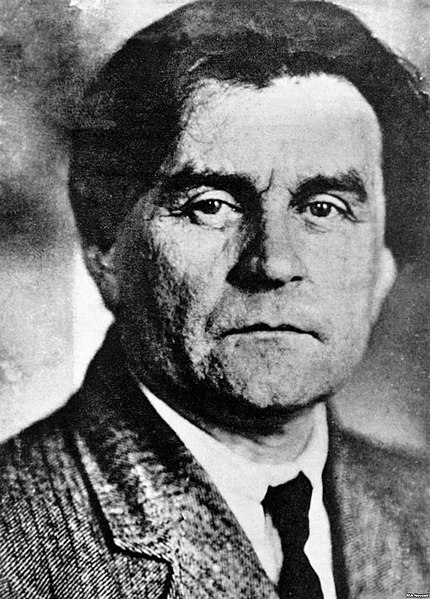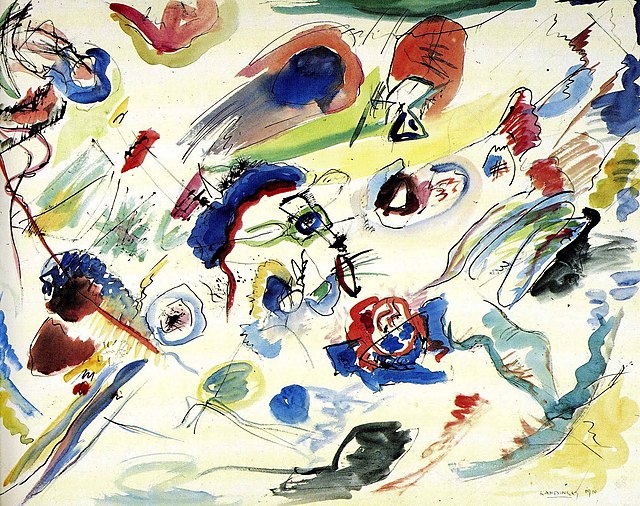Kazimir Severinovich Malevich was a Russian avant-garde artist and art theorist, whose pioneering work and writing influenced the development of abstract art in the 20th century. He was born in Kiev, modern-day Ukraine, to an ethnic Polish family. His concept of Suprematism sought to develop a form of expression that moved as far as possible from the world of natural forms (objectivity) and subject matter in order to access "the supremacy of pure feeling" and spirituality. Active primarily in Russia, Malevich was a founder of the artists collective UNOVIS and his work has been variously associated with the Russian avant-garde and the Ukrainian avant-garde, and he was a central figure in the history of modern art in Central and Eastern Europe more broadly.
Kazimir Malevich
Kazimir Malevich (c.1900)
The Knifegrinder, oil on canvas, 1912
Black Square, oil on canvas, 1915
The Russian avant-garde was a large, influential wave of avant-garde modern art that flourished in the Russian Empire and the Soviet Union, approximately from 1890 to 1930—although some have placed its beginning as early as 1850 and its end as late as 1960. The term covers many separate, but inextricably related, art movements that flourished at the time; including Suprematism, Constructivism, Russian Futurism, Cubo-Futurism, Zaum, Imaginism, and Neo-primitivism. In Ukraine, many of the artists who were born, grew up or were active in what is now Belarus and Ukraine, are also classified in the Ukrainian avant-garde.
Abstract art. Vasily Kandinsky, Kandinsky's first abstract watercolor (Study for Composition VII, Première abstraction), painted in 1913
Russian Futurism. Natalia Goncharova, Cyclist, 1913
Rayonism. Mikhail Larionov, The Glass, 1912
Suprematism. Kazimir Malevich, Black Square, 1915







